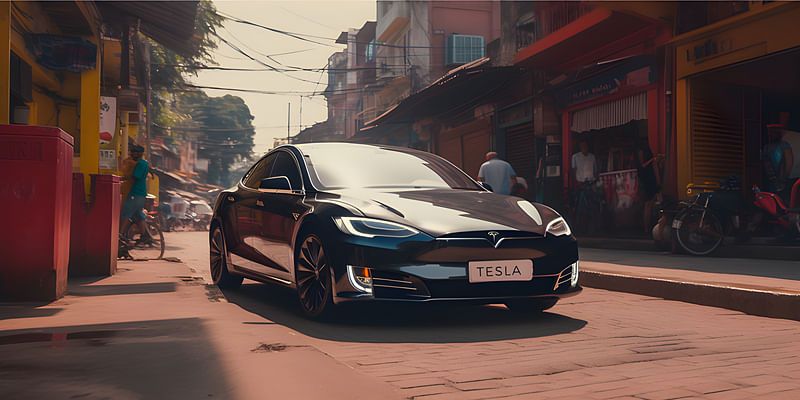
In a significant stride toward a greener tomorrow, Tesla, the electric vehicle giant, is negotiating to establish a car factory in India. This development comes at a time when the world is gravitating towards more sustainable modes of transportation, and Tesla’s interest in India bolsters the country’s progressive stance on clean energy.
The potential Tesla factory would have an annual production capacity of up to 500,000 electric vehicles. The vehicles are proposed to start at a price of 20 lakh rupees ($24,400.66), making Tesla’s revolutionary electric technology more accessible to the Indian market.
While Tesla has primarily dominated the Western market, its venture into India represents a strategic shift. India’s growing economy, burgeoning middle class, and explicit interest in sustainable technology make it a highly viable market for electric vehicles. The proposal not only illustrates Tesla’s desire to broaden its global presence but also its intent to leverage India as an export base, shipping cars to other countries in the Indo-Pacific region.
Interestingly, last year, talks between Tesla and the Indian government reached a deadlock over import taxes on cars, which can be as high as 100%. Tesla sought reduced import taxes, while the Indian government encouraged local manufacturing. The new proposal suggests a reconciliation of these interests, with Tesla now focusing on local manufacturing and export rather than solely importing finished cars.
Furthermore, it appears that the company is responding positively to the incentives offered by the Indian government for car and battery manufacturing. The government’s push for significant investment in the region, demonstrated by Prime Minister Narendra Modi’s meeting with Tesla’s CEO Elon Musk last month, shows a commitment to fostering a more sustainable automotive industry in India.
While Tesla’s entry into the Indian market offers considerable opportunities for both the company and the country, it’s also poised to create a ripple effect in the global EV industry. Increased competition could drive other major manufacturers to step up their game, leading to better products, more innovation, and ultimately a quicker shift to a more sustainable transport future.
However, there are still challenges ahead. Infrastructure, including the lack of charging stations, and the relatively high cost of EVs compared to traditional vehicles, could hinder Tesla’s journey in India. Yet, Tesla’s proposed investment is a step forward in the right direction and could trigger significant developments in India’s EV infrastructure and ecosystem.
Tesla’s plans to set up a factory in India are a testament to the country’s potential as a major player in the green energy revolution. By leveraging India’s manufacturing capabilities, Tesla aims not just to penetrate the local market, but also use the country as a base for exporting its vehicles to the Indo-Pacific region, setting the stage for a more sustainable automotive industry across Asia.
.thumbnailWrapper
width:6.62rem !important;
.alsoReadTitleImage
min-width: 81px !important;
min-height: 81px !important;
.alsoReadMainTitleText
font-size: 14px !important;
line-height: 20px !important;
.alsoReadHeadText
font-size: 24px !important;
line-height: 20px !important;







![Read more about the article [Funding alert] Beauty startup Believe raises $55M in Series C led by Venturi Partners, IIFL AMC](https://blog.digitalsevaa.com/wp-content/uploads/2022/04/Believeankit-1650521268644-300x150.png)


![Read more about the article [Funding roundup] Intellemo, Infinity Box, Goldsetu, Carapace raise fresh capital](https://blog.digitalsevaa.com/wp-content/uploads/2022/05/Funding-1587044486257-300x150.png)
